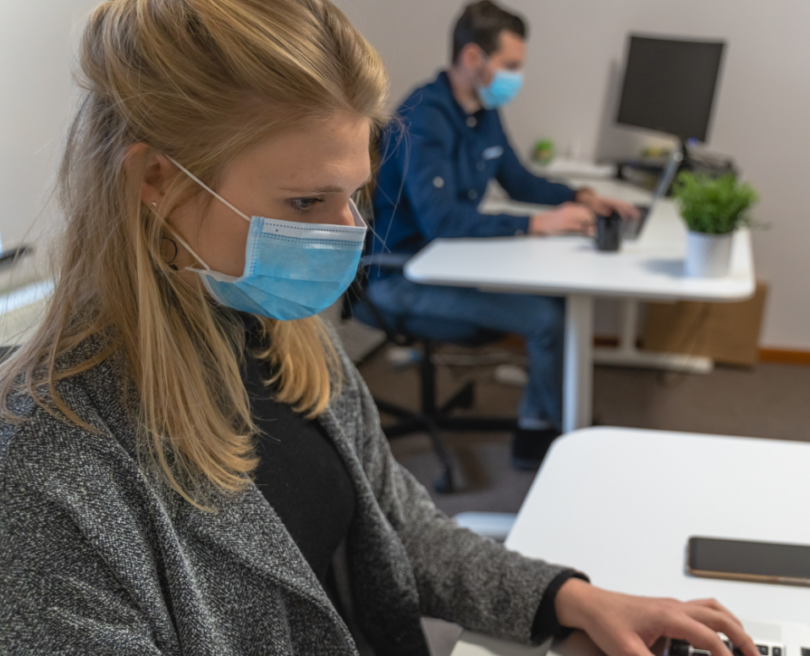I could start this article by using a phrase that would look good in most articles on change: “Change is happening all around us and is impossible to overlook. Change can be internally motivated or externally motivated, anticipated or unexpected, change can be minor or a dramatic departure from what we know. But in all cases, the fundamental nature of change is a movement from the current state to a future state.” And there would follow some tips and tricks on how to manage change. Not today.
Today’s situation is another Black Swan of human society – (referring to Nassim Nicholas Taleb’s bestselling book in 2007). Corona is the rare and unpredictable outlier event with extreme impact on every aspect of human society. In the nearby future, when the virus will be tamed, humanity will, retrospectively, want to come up with rather simplistic explanations why this happened. Hoping it will give us insights to avoid a similar event in the future. But it won’t. Explanations or measurements will probably prevent a similar copy of it. Black Swans are, by definition, not copies. They are new. Unprecedented. Unpredictable. And there will be more of those in the future. As impactful as before. Or more.
So, do Black Swan situations provide a free card to all leaders of society and organisations for not being prepared then? Is the unpredictability of events like this letting all the executives of organisations off the hook? Are reactions like “”We didn’t know that something like this could happen, so we could not prepare ourselves” justified? Not quite. There is one thing you can always focus on more: keeping stability during times of change.
Surely, we cannot change what happens to us today, but instead of panicking, we can work on creating a feeling of mental and emotional safety and solidity.
Here are 6 recommendations for you, as an organisational leader in crisis mode, to keep in mind:
1. CLARITY PRECEDES MASTERY: BE CRYSTAL CLEAR ON YOUR STRATEGY AND STICK TO IT.
Today it’s more important to make clear choices than trying to make the right choices. Truth is hard to find. So, use that crystal-clear strategy of yours and act accordingly in reaching your long-term strategic goals. Stick to it now. Highlight it again. Use it every time you can. Show your employees that even now this is the choice to stick to. Explain them why and how. And in holding on to these long-term goals, be agile in reaching your short-term goals. Adapt to the current situation but keep the big picture firmly alive. Decisive leaders build trust in times of crisis. Great leaders create the future, manage the present and selectively forget the past.
2. THE POWER OF QUIET PERSISTENCE: PEOPLE NEED INSPIRATION, ALIGNMENT AND POSITIVE ENERGY
Leaders, executives, decisionmakers are important sources of energy in your organisation. So what type of energy do you radiate today? What is the perception people get from you? Especially in times of crisis, you need to express persistence, hope, positiveness, accessibility, decisiveness and show the One Voice, One Message, One Team attitude. Do not waste any opportunity to share this with your employees. Navigate irrational reality, play for team humanity.
3. CREATE A WORKING CONTEXT THAT REINFORCES THE BEHAVIOR THAT YOU EXPECT
Many companies ask their employees to work from home now. The ones that need to come to the office find themselves in unreal situations. Instead of telling people what to do or not to do, look at your working context today: your procedures, processes, software, hardware, physical working environment… Do they really reinforce the behaviour that you expect from your people, or do they make it harder instead? Can you make small, acceptable changes to make it easier for people to show the expected behaviour? Today, this would mean understanding their home-working situation. Are your systems user-friendly enough in this situation? Can certain procedures be altered to make the job-experience easier? Can you help them with practical tools that encourage the use of online systems?
4. ACTIONS SPEAK LOUDER THAN WORDS
These times are good moments of showing what your organisation is worth in putting things into practice. Again, as stated above, decisiveness is key. Can your organisation surpass the rigidness of risk averse stuck state thinking? Can you show your employees that you can act quickly, clearly, and consistently? Seeing and experiencing has a much more motivational impact than thinking and analysing.
5. ORGANISATIONAL AMBIDEXTERITY: RATIONALITY NEXT TO RIGOROUS OPENNESS, CANDID HONESTY, AND TOGETHERNESS
Changing culture is not easy. It requires much more than some hollow guidelines on new behaviour and new mindsets. But today, the sense of urgency is high. Use this moment to show a more emotional side of your organisation and its leaders. Act more openly, collaborative and receptive to questions, concerns, and suggestions than ever before. Dare to show vulnerability. Your reactions today might be the start of a new behaviour for the future. And again, people will remember how you reacted during this crisis and how your leadership made the difference. Or not. Manage your people as carefully as you normally manage your money.
6. SOCIAL DISTANCE, BUT BE CREATIVE IN ESTABLISHING CONNECTION
Humanity fights one common enemy now. We feel bonded. We are all in the same boat. Use this situation to show that you care. Let’s stay connected. Very connected. Reach out to your employees. Don’t hide now. Call them, chat with them, mail them. Be creative. Not only for professional reasons, but just because you love them. Again, your organisation and its people will remember in the future how you treated them. It will turn into positiveness over time.
Be safe. Take care of yourself and each other.


